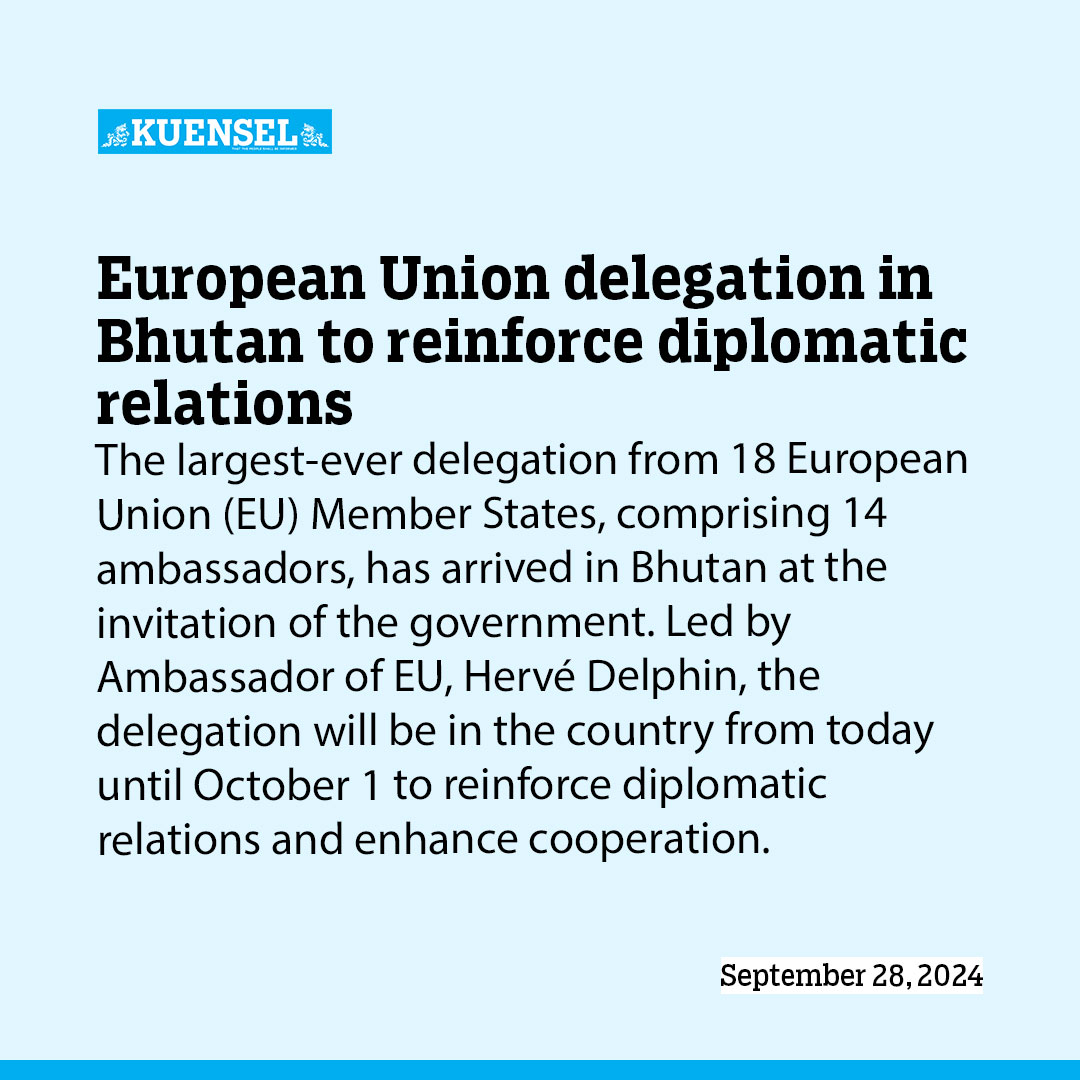Yangyel Lhaden
The largest-ever delegation from 18 European Union (EU) Member States, comprising 14 ambassadors, has arrived in Bhutan at the invitation of the government.
Led by Ambassador of EU, Hervé Delphin, the delegation will be in the country from today until October 1 to reinforce diplomatic relations and enhance cooperation.
The partnership between the EU and Bhutan dates back to 1982, beginning with a development project focused on renewable natural resources. Diplomatic relations were formally established in 1985, laying the groundwork for a long-standing alliance.
During their visit, EU ambassadors will engage in the Bhutan Innovation Forum in Paro, supporting Bhutan’s efforts to attract foreign investment.
The delegation will also visit EU-funded projects and hold a series of official meetings with members of the government and Parliament.
Key topics of discussion will include strengthening the EU-Bhutan partnership, Bhutan’s development under the 13th Plan, and the ambitious Gelephu Mindfulness City project. Other focal points will encompass agricultural modernization, local governance, renewable energy, education, climate action, and environmental protection—areas where Bhutan has demonstrated notable global leadership.
This visit is a testimony of the warmth and enduring strength of our relationship, Hervé Delphin said. “The EU and Bhutan’s close partnership is rooted in a shared vision of a rule-based global order as enshrined in the universal principles of the UN Charter, and a shared commitment to the global commons of sustainable development, protection of the biodiversity and environment and climate action.”
Hervé Delphin emphasised the EU’s support for Bhutan’s aspirations as a sovereign nation committed to cultural identity and sustainable progress. “We look forward to productive exchanges with our Bhutanese counterparts to further advance our cooperation,” he added.
The EU delegation includes ambassadors from Austria, Belgium, Bulgaria, Cyprus, Estonia, Finland, Ireland, Italy, Latvia, Lithuania, Luxembourg, the Netherlands, Slovenia, and Spain. They are joined by deputy heads of mission from Denmark, Germany, Poland, and Sweden, as well as key EU officials.
Over the years, the EU has played a vital role in supporting Bhutan’s sustainable development agenda through its 2021-27 Multiannual Indicative Programme, which focuses on climate change, governance, and digital transformation. The EU has allocated an initial grant of EUR 31 million for the period of 2021-2024, with additional funds for sustainable tourism, civil society projects, and private sector investments.
In addition to this, funds are given to projects such as in support of sustainable tourism —EUR 1.3 million, ongoing civil society projects and their engagement with the parliament—EUR 3.5 million, and support for private sector investments—EUR 1.3 million.
In April this year, the European Investment Bank made a landmark move by signing a EUR 150 million loan agreement with the government to advance solar power and small hydro projects.
The EU comprises 27 countries and has the world’s second-largest economy and third-largest population, after China and India.


